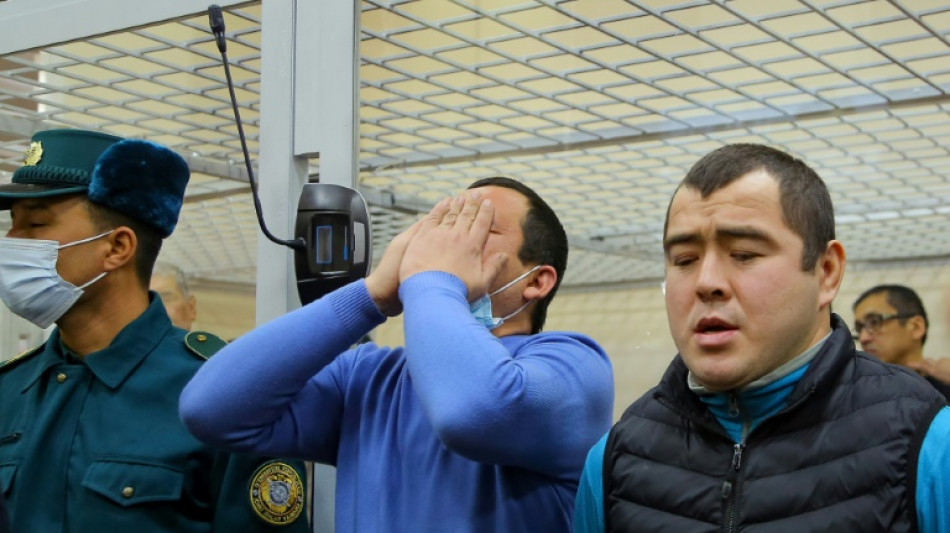
-
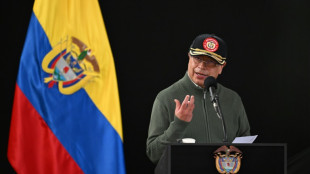 Colombia moves to join China's Belt and Road
Colombia moves to join China's Belt and Road
-
Martinez cried 'for two days' after nearly missing Barca triumph with injury

-
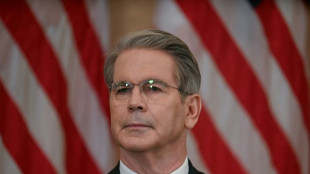 US, Chinese officials to hold trade talks in Switzerland
US, Chinese officials to hold trade talks in Switzerland
-
Barca 'will be back' after painful Champions League exit to Inter, says Flick

-
 US jury awards WhatsApp $168 mn in NSO Group cyberespionage suit
US jury awards WhatsApp $168 mn in NSO Group cyberespionage suit
-
India launches strikes on Pakistan, Islamabad vows to 'settle the score'
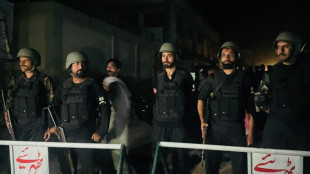
-
 Trump vows 'seamless' experience for 2026 World Cup fans
Trump vows 'seamless' experience for 2026 World Cup fans
-
Motown legend Smokey Robinson sued for sexual assault

-
 Trump hopes India-Pakistan clashes end 'very quickly'
Trump hopes India-Pakistan clashes end 'very quickly'
-
Frattesi shoots Inter into Champions League final after Barcelona epic

-
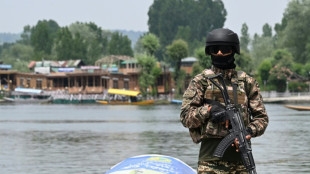 India launches strikes on Pakistan, Islamabad vows retaliation
India launches strikes on Pakistan, Islamabad vows retaliation
-
India launches strikes on Pakistan as Islamabad vows retaliation
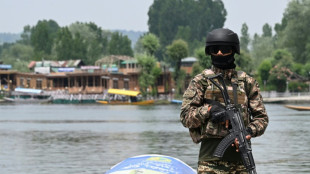
-
 Alpine shock as F1 team principal Oakes resigns
Alpine shock as F1 team principal Oakes resigns
-
Merz elected German chancellor after surprise setback
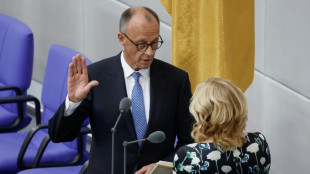
-
 Gujarat edge Mumbai in last-ball thriller to top IPL table
Gujarat edge Mumbai in last-ball thriller to top IPL table
-
Israel's plan for Gaza draws international criticism
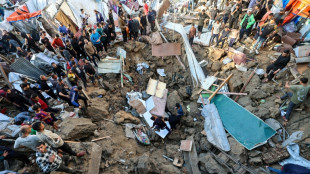
-
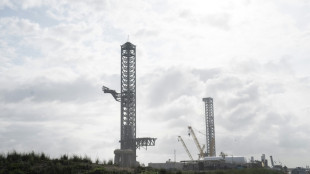 SpaceX gets US approval to launch more Starship flights from Texas
SpaceX gets US approval to launch more Starship flights from Texas
-
Alpine F1 team principal Oakes resigns

-
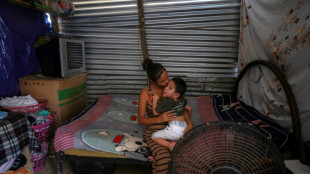 Colombia's desert north feels the pain of Trump's cuts
Colombia's desert north feels the pain of Trump's cuts
-
Arsenal determined 'to make a statement' against PSG in Champions League semi-final

-
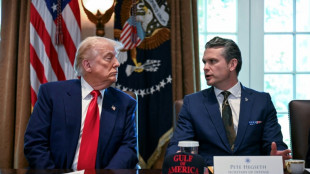 Top US court allows Trump's ban on trans troops to take effect
Top US court allows Trump's ban on trans troops to take effect
-
Whole lotta legal argument: Led Zeppelin guitarist Page sued

-
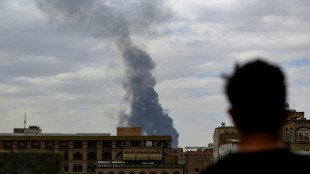 US, Yemen's Huthis agree ceasefire: mediator Oman
US, Yemen's Huthis agree ceasefire: mediator Oman
-
Johnson receives special invite to PGA Championship

-
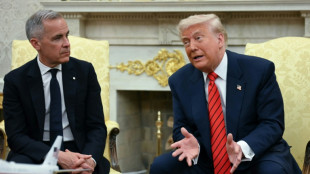 Trump says US should to stop 'subsidizing' Canada as trade talks continue
Trump says US should to stop 'subsidizing' Canada as trade talks continue
-
Indian PM vows to stop waters key to rival Pakistan
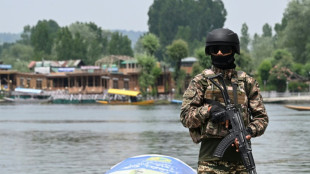
-
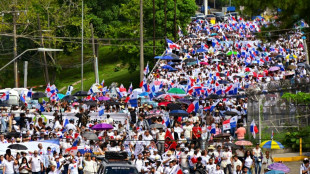 Thousands demonstrate in Panama over deal with US military
Thousands demonstrate in Panama over deal with US military
-
Canada 'never for sale', Carney tells Trump
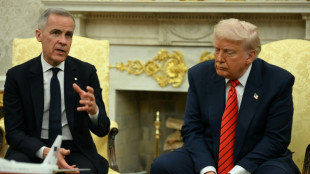
-
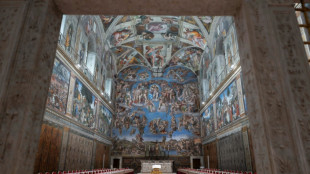 Vatican readies for conclave lockdown
Vatican readies for conclave lockdown
-
Championship club Watford sack manager Cleverley

-
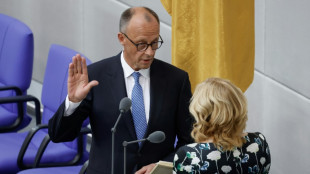 New German leader Merz stumbles out of the blocks
New German leader Merz stumbles out of the blocks
-
'Wagatha Christie': Vardy and Rooney settle on legal costs

-
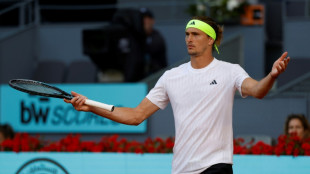 Defending Rome champion Zverev blames burn out on poor run of form
Defending Rome champion Zverev blames burn out on poor run of form
-
No signs of US recession, Treasury Secretary says
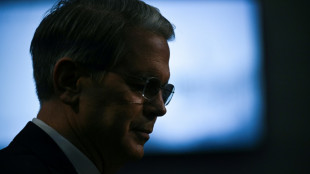
-
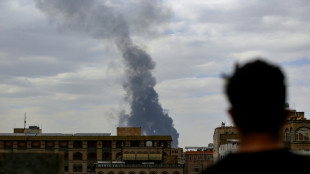 Israel pummels Yemen airport in reprisal against Huthis
Israel pummels Yemen airport in reprisal against Huthis
-
Swiatek struggling with 'perfectionism' ahead of Rome

-
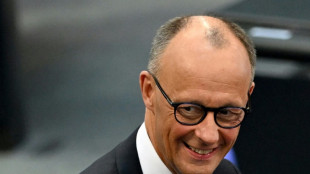 Germany's Merz elected chancellor after surprise setback
Germany's Merz elected chancellor after surprise setback
-
Ukraine fires drones on Moscow days before WWII parade
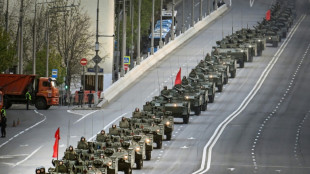
-
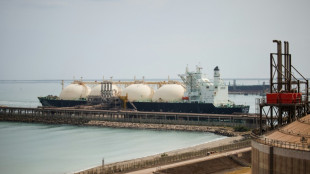 EU proposes ending all Russian gas imports by 2027
EU proposes ending all Russian gas imports by 2027
-
UK, India strike trade deal amid US tariff blitz

-
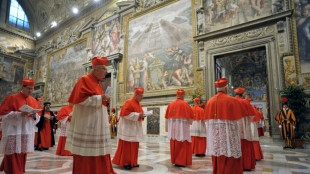 Move over Met Ball. For fashion wow head to the Vatican
Move over Met Ball. For fashion wow head to the Vatican
-
Stocks retreat as traders cautious before Fed rates call
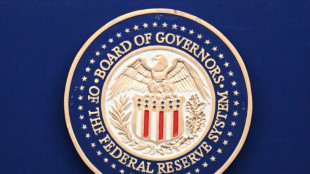
-
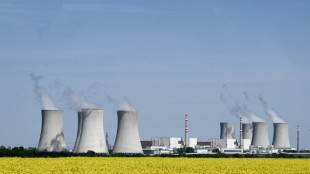 EDF complaint blocks Czech-Korean nuclear deal
EDF complaint blocks Czech-Korean nuclear deal
-
Germany's Merz faces new vote for chancellor after surprise loss
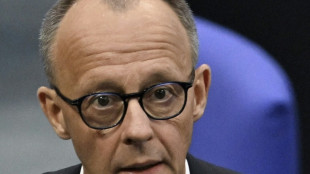
-
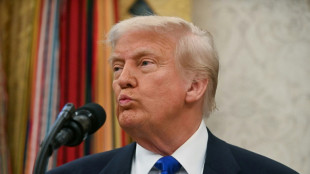 US trade deficit hit fresh record before new Trump tariffs
US trade deficit hit fresh record before new Trump tariffs
-
US Fed starts rate meeting under cloud of tariff uncertainty
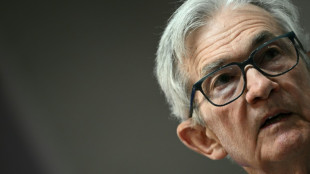
-
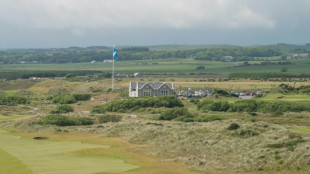 Trump's Aberdeen course to host revived Scottish Championship
Trump's Aberdeen course to host revived Scottish Championship
-
Argentina's 1978 World Cup winner Galvan dies

-
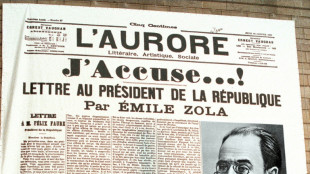 French lawmakers want Dreyfus promoted 130 years after scandal
French lawmakers want Dreyfus promoted 130 years after scandal
-
AFP Gaza photographers shortlisted for Pulitzer Prize


Uzbekistan jails protesters over anti-regime demonstrations
A journalist was among nearly two dozen people sentenced on Tuesday in Uzbekistan on charges related to fatal anti-regime protests in the former Soviet republic last year.
Authorities have said 21 people died during unrest sparked by planned reforms that would have undermined self-determination in the country's republic of Karakalpakstan.
The violence in Nukus, the main city in Karakalpakstan, forced the Central Asian nation's autocratic president, Shavkat Mirziyoyev, to make a rare about-face and scrap the proposal.
Twenty-two people went on trial over the demonstrations on various charges, including "undermining constitutional order" and looting.
All defendants either pleaded guilty or admitted to being guilty of some violations.
Sixteen people were sentenced to jail terms of between three and 16 years, including the main defendant, journalist and lawyer Dauletmurat Tazhimuratov, who authorities say instigated the protests.
He was sentenced to 16 years behind bars.
Lolagul Kallykhanova, also a journalist and key figure in the trial, was handed a suspended sentence although prosecutors requested 11 years in prison.
Four defendants had their movements restricted and one other received suspended sentences.
Speaking after the trial Kallykhanova told reporters she "deserved to have been imprisoned" and thanked the head of state for her lenient sentence.
Karakalpakstan is home to fewer than two million people out of a nation of 35 million, but it covers more than a third of Uzbek territory.
- 'Excessive use of force' -
The impoverished region is closely associated with the drying Aral Sea, one of the world's great man-made environmental catastrophes.
Karakalpakstan has its own parliament, council of ministers, flag and anthem.
Protests erupted in Nukus on July 1 and 2 over a move to remove Karakalpakstan's right -- protected under the constitution -- to hold a referendum on self-determination.
Hundreds of people were arrested.
President Mirziyoyev accused "foreign forces" of propelling the unrest, without further explanation, before scrapping the proposed changes.
Mirziyoyev came to power in 2016 after the death of his autocratic predecessor, Islam Karimov.
He has pushed through economic and social reforms but his regime is accused by rights groups of trampling basic freedoms.
Human Rights Watch said in November that the authorities "unjustifiably used lethal force... to disperse mainly peaceful demonstrators" after verifying dozens of videos and photos of the protests.
A probe has been launched into the excessive use of force, Uzbek prosecutors said in December.
While journalists were authorised to cover the trial of Tazhimuratov and his co-defendants, it was held in distant Bukhara, around 600 kilometres (370 miles) from both Nukus and Tashkent, the capital.
The prosecutor's office confirmed to AFP that 21 people died in the riots, but a list of victims and the circumstances of their death have not been made public.
Uzbekistan is the most populous ex-Soviet republic in Central Asia and has historic ties with Russia.
But since Moscow's invasion of Ukraine, Tashkent and some its Central Asian neighbours have looked elsewhere, including China and Europe.
Despite being home to a wealth of natural resources, including gas, Uzbekistan has faced economic difficulties, including energy shortages amid historically cold temperatures this winter.
In Karakalpakstan, climate change and drought have also affected its key industry, agriculture.
Y.Aukaiv--AMWN